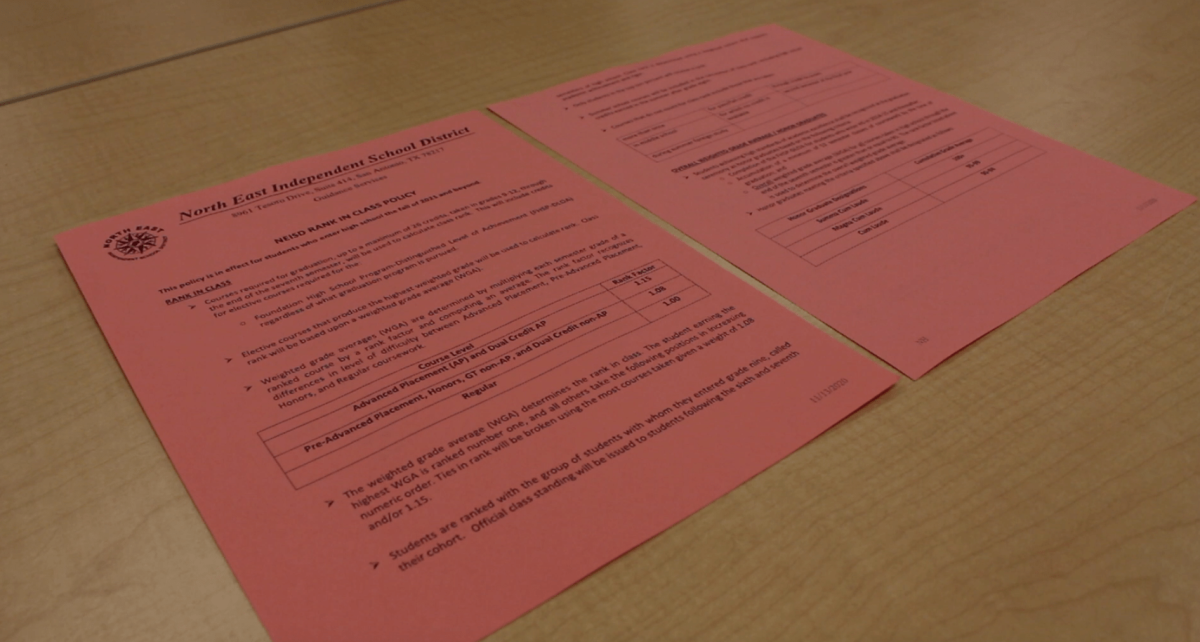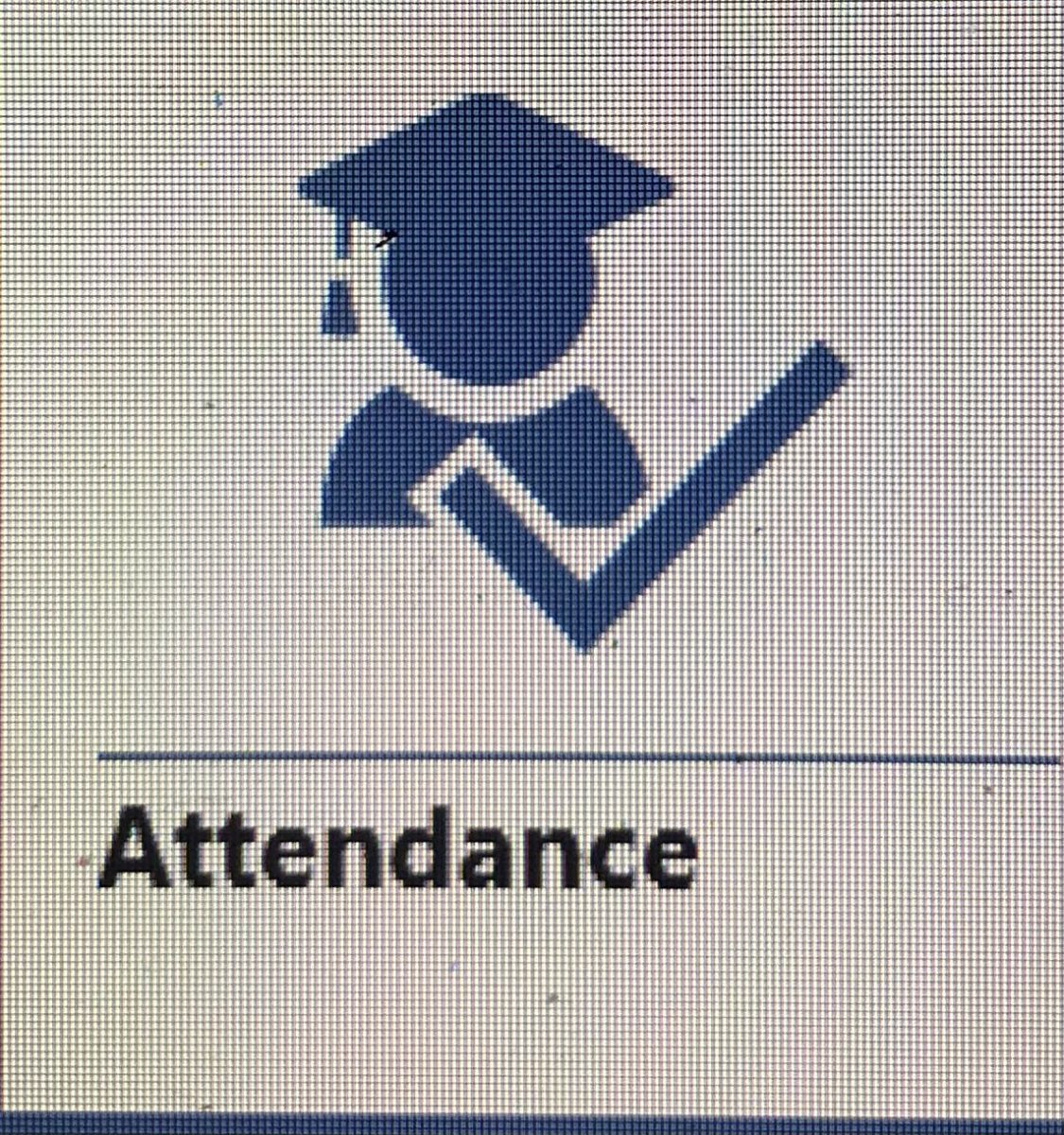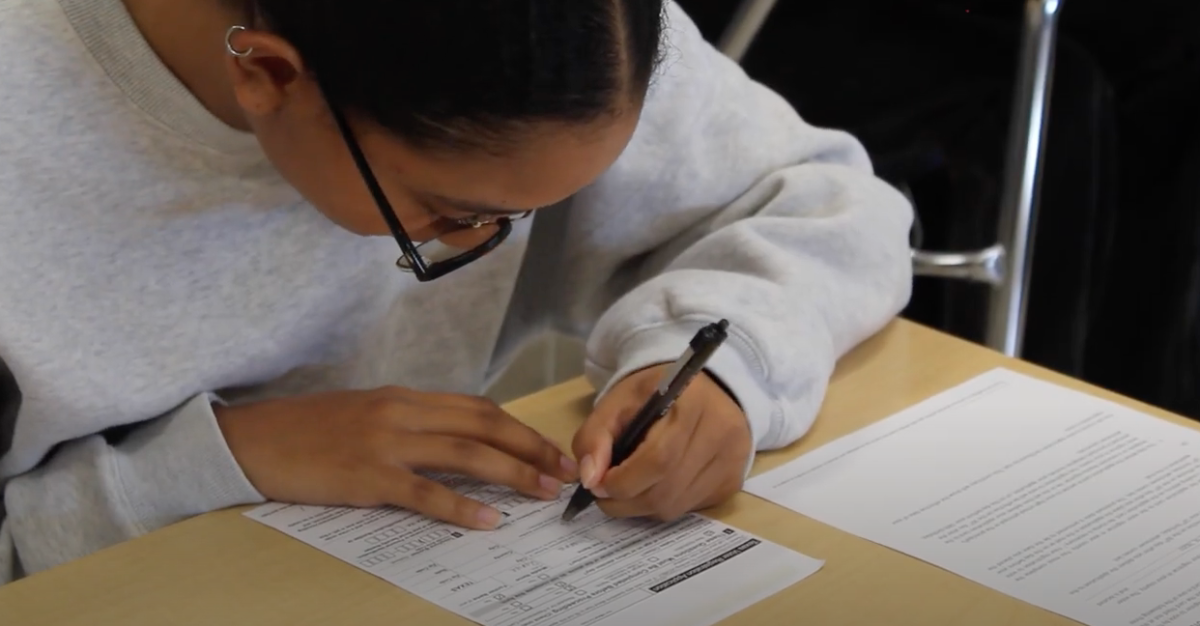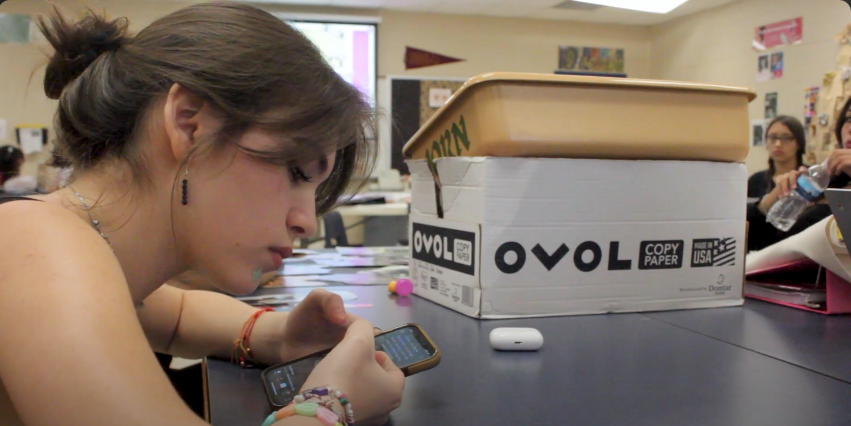by Chloe Jordan | feature editor
NEISD has changed the way class rank works, and it is in effect for the Class of 2025; current freshmen. Classes like Algebra I and other courses that can be taken in middle school for high school credits have already been affected by this change.
“The district passed a new policy for the new ways that GPA and rank will be calculated for the class of 2025. The main changes are that the school board passed for our incoming ninth graders was the multiplier for honors and AP courses,” counselor Courtney Tarbox said. “Now in honors, classes will have a multiplier of 1.08, and an AP class will have a multiplier of 1.15.”
With a decrease in the multiplier, the goal is to encourage students to not take too many AP courses to just receive the multiplier and instead select courses that bring them enjoyment.
“Our hope is that they will be able to select courses more based on their interest areas and be able to challenge themselves but not get overwhelmed,” Tarbox said.
According to Tarbox, colleges look at students’ unweighted GPA when determining scholarships and financial aid. Students who focus on taking a heavy load of AP classes may not be able to do their best because of the intensity of each course, and in previous years, students have relied heavily on the multiplier.
“You might know National Honors Society uses an unweighted GPA without the multiplier,” Tarbox said. “If we don’t provide a rank system, then our students will be looked at in a more holistic review.”
Students like junior Kaylee Dowe agree that doing away with rank will decrease a competitive environment that leads to certain mental illnesses and skewed self perception.
“Removing the ranks will help the anxiety of comparison and achievement, and it will focus achievement on individual students rather than where they stand comparatively to other students,” Dowe said.
Upperclassmen are still dealing with the current rank system, especially with high GPAs because of the high multipliers of AP classes, but freshmen will not experience this the same.
“The anxiety of not being high enough to go to whatever college you might want to go to is detrimental and it probably doesn’t help with pre-existing mental health conditions or illnesses that I think a lot of people seem to have, a lot of teenagers seem to have,” Dowe said. “And it just seems like it would make it worse – anxiety disorders and depression disorders and things of that nature or worse. Schools shouldn’t be about winning, it should be about learning. And it’s not.”
According to Dowe, students feel like they have to take AP classes to succeed, while students should feel like they can learn at their own pace, with whatever courses interest and benefit them.
“I think that AP classes I guess were designed for faster learners, but now they’re pushed on to people and being in an AP class is an achievement within itself. Which, again, it shouldn’t be about that. It should be about what you know, what you can learn,” Dowe said. “It just means you learn differently. Everybody learns differently, so it shouldn’t matter. I mean, just like accommodations for neurodivergence and things like that. I mean it’s just the start of making school easier for those that are neurodivergent and don’t learn the way that most people learn.”
In Dowe’s opinion, the rigor of AP courses can inhibit students’ abilities to rest and find enjoyment outside of school.
“And school should be easy. It shouldn’t be hard,” Dowe said. “Because what is the point of making it hard? What is the incentive for high school students to even try if it’s just going to be hard? It’s so organized in the way that they assume that everybody’s the same.”
Although juniors such as Kaylee Dowe look at the changes for the Class of 2025 from a mental health perspective, freshmen like Tristen Hoffman believe it undermines their academic achievements.
“I don’t like it, but I think that it’s, in some ways, it helps alleviate some stress in students. But I think with students, if we were ranking, that would be up there, would want to see how they’re doing compared to others and I think that it can help them push themselves to do their best,” freshman Tristen Hoffman said. “I don’t like [the multipliers decreasing] at all because if I’m in an AP class, I want my grade to reflect higher, and with them lowering it, it makes my grade look worse. Not to say it’s bad or anything, like, the multiplier is still there, it’s still very beneficial. I just think with a higher multiplier, it’s better.”














